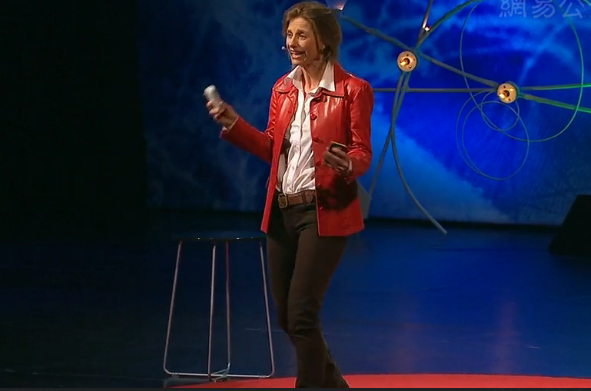Three years ago, I was standing about a hundred yards from Chernobyl nuclear reactor number four.
三年前,我站在距離切爾諾貝利第四號核子反應爐大約一百碼外。
My Geiger counter dosimeter, which measures radiation, was going berserk,
我的蓋革放射量測定器,用來測量輻射量,指數狂飆,
and the closer I got, the more frenetic it became, and frantic. My God.
當我越接近,機器的反應越激烈,我的天。
I was there covering the 25th anniversary of the world's worst nuclear accident,
我當時在那里播報世上最嚴重的核災事故25周年報導,
as you can see by the look on my face, reluctantly so, but with good reason,
你可以看到我臉上的表情,不太情愿,但是我有個好理由,
because the nuclear fire that burned for 11 days back in 1986
因為1986年時核火災延燒了11天,
released 400 times as much radiation as the bomb dropped on Hiroshima,
釋放的輻射量大約是投擲在廣島的原子彈的400倍,
and the sarcophagus, which is the covering over reactor number four,
而用來覆蓋第四號反應爐的“石棺”
which was hastily built 27 years ago, now sits cracked and rusted and leaking radiation.
在27年前匆促完成,現在已破裂、生銹,并且釋出輻射。

So I was filming.
當時我在拍攝,
I just wanted to get the job done and get out of there fast.
只想把工作完成,趕快離開現場。
But then, I looked into the distance, and I saw some smoke coming from a farmhouse,
在那當下,我望向遠方,看到農舍上冉冉升起的炊煙。
and I'm thinking, who could be living here?
我想,誰會住在這里?
I mean, after all, Chernobyl's soil, water and air,
我的意思是畢竟切爾諾貝利的泥土、水和空氣
are among the most highly contaminated on Earth,
是世界上受到最嚴重污染的地方之一,
and the reactor sits at the the center of a tightly regulated exclusion zone, or dead zone,
而反應爐座落在嚴密管制禁區的中央,或者說是死亡禁區,
and it's a nuclear police state, complete with border guards.
那是一個核能警察國家,有邊防警察。
You have to have dosimeter at all times, clicking away,
你得時時刻刻帶著放射量測定器,
you have to have a government minder,
你得要有政府官員陪同,
and there's draconian radiation rules and constant contamination monitoring.
而且還有很嚴格的輻射法規,以及不間斷的污染監測。
The point being, no human being should be living anywhere near the dead zone.
重點是,沒有人可以住在靠近死亡禁區的任何一個角落。
But they are.
但是他們卻住在那里。
It turns out an unlikely community of some 200 people are living inside the zone.
結果是一群不太像社區的200人住在里面,
They're called self-settlers.
他們被稱為自主移居者。
And almost all of them are women,
他們幾乎全都是女性,
the men having shorter lifespans in part due to overuse of alcohol, cigarettes, if not radiation.
男性的壽命較短,有一部分是因為他們飲酒過量、抽煙,如果排除輻射因素的話。
Hundreds of thousands of people were evacuated at the time of the accident,
在意外發生時有成千上萬人被撤離,
but not everybody accepted that fate.
但不是每個人都接受這樣的命運安排。
The women in the zone, now in their 70s and 80s, are the last survivors of a group who defied authorities
住在禁區的女性現在大概7、80歲,是最后一批違反公權力的幸存者,
and, it would seem, common sense, and returned to their ancestral homes inside the zone.
對他們來說這就像常識,回到他們在禁區里的故鄉。
They did so illegally.
這么做其實是違法的。
As one woman put it to a soldier who was trying to evacuate her for a second time,
其中一名女性向第二次要驅離她的士兵表明:
"Shoot me and dig the grave. Otherwise, I'm going home."
“一槍斃了我,然后幫我挖個墳。否則我要回家了。”
Now why would they return to such deadly soil?
那么為什么他們要,回到如此致命的土地上呢?
I mean, were they unaware of the risks or crazy enough to ignore them, or both?
我的意思是,他們有意識到這些風險嗎?或是他們瘋狂到可以忽略這個事實?還是說兩者都是?
The thing is, they see their lives and the risks they run decidedly differently.
重點是,他們肯定用很不同的方式看待自己的生命和要冒的險。











